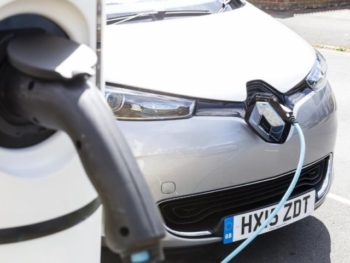Bring 2% BiK rate forward to 2019, say leading firms
Addressing the cliff-edge in company car benefit-in-kind (BiK) tax rates and bringing forward the 2% rate to 2019/20 could help drive ULEV uptake.
That’s the view of the Energy UK trade association and business and environmental firms, which say the Government should be “more ambitious” in supporting uptake of electric vehicles.
Announced as the National Infrastructure Commission makes a similar call for further action on ULEVs, the coalition of businesses – including Sky, Aviva, Zipcar and Wilmott Dixon – have written a letter to the Prime Minister urging for the forthcoming Budget to eliminate short-term barriers to electric vehicle uptake by addressing the cliff-edge in company car BiK tax rates before 2020/21, which serve as disincentives to zero-emission uptake, and to bring forward the 2% rate to 2019/20. The call comes just a few weeks after Fleet World published a petition urging the Government to take action on areas impacting company car uptake, including taxation.
Energy UK and the coalition of businesses also call on the Government to accelerate the phase-out of new petrol and diesel vehicles; and ensure supportive electric vehicle sales targets and policies.
Fiona Ball, head of responsible business at Sky, said: “We are committed to a low carbon future and we became the first carbon neutral media company in 2006. We’ve invested in electric vehicle charging points at our own sites and we’re reviewing the feasibility of alternative fuel vehicles for our cars and vans. As part of this we’re working with others to make sure the uptake of zero emissions vehicles is viable and that is why we are joining this call to the government to support this vital transition.”
The letter echoes points made by the National Infrastructure Commission in its first-ever National Infrastructure Assessment, which highlights the need for a truly national and visible charging network.
Although the Government’s recently published ultra-low emission vehicles by 2030, the Commission recommends that government, Ofgem and local authorities should enable the roll out of charging infrastructure sufficient to allow consumer demand to reach close to 100% new electric car and van sales by 2030.
Recommendations for action include councils allocating a portion of their parking spaces for charging electric vehicles and that Ofgem should take on the role of regulating the interaction between electric vehicle charge points and the electricity network immediately, ensuring that electric vehicle charging and vehicle-to-grid services contribute to the optimisation of the energy system.
Responding to the letter from Energy UK to the Government, a National Infrastructure Commission spokesman said: “Recent figures have shown the increasing demand there is for electric vehicles. Today’s call from Energy UK and business is therefore welcome recognition of the benefits this can bring to the UK.
“But to support drivers to make the switch from petrol and diesel, our National Infrastructure Assessment recommends that councils work with charge point providers to ensure more of their parking spaces – including on-street parking – can be ready for electric vehicles.
“This should be a key part of delivering a truly visible and national charging network so that as demand for electric cars continues to surge, our infrastructure can keep up.”
Benefit in KindBiKcharge pointelectric carEnergy UKEVGovernmentNational Infrastructure Commission













